Plans for electrification: Who is doing what and when?
It’s hard to ignore the push towards electrification that is shaping the motoring industry. With more stringent emissions regulations and many different bans on petrol and diesel cars being introduced the world over, developing electric and hybrid powertrains is critical to a car company’s progression.
But what is being developed and what are the manufacturers’ plans about all things electric? We’ve got the lowdown for you.
Audi
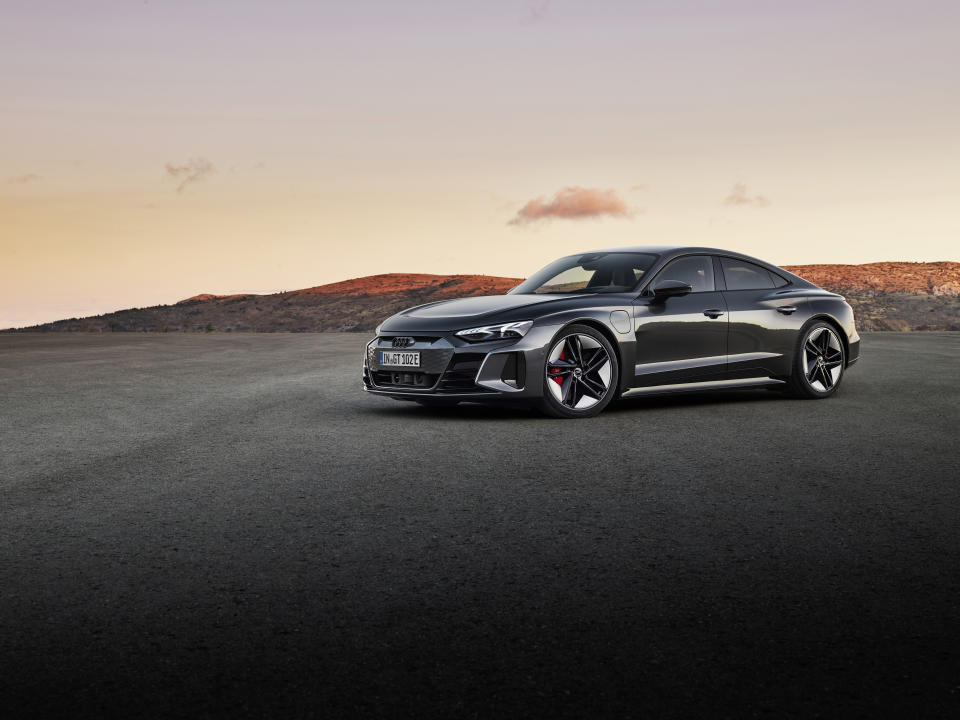
Audi is already well on its way with electrification plans, having introduced the fully electric e-tron and e-tron GT models as well as a huge variety of plug-in hybrids.
It plans to have 30 electrified models – either fully electric or hybrid – on sale by 2025, with 20 of those being solely electric variants. It also plans to be completely CO2 neutral by 2050 ‘at the latest’.
Alfa Romeo

Alfa Romeo currently lacks any electrified option, with the bulk of its range made up of the Giulia saloon and Stelvio SUV. That could be set to change, however, as it’s expected that the firm will release an electric version of its Tonale compact SUV.
Alfa lies under the Fiat Chrysler group and, as a result, is now joined to PSA underneath the wider Stellantis group. We’d expect Alfa Romeo’s plans to become even more electric-centric after the move.
Aston Martin

Aston Martin was one of a number of manufacturers who suffered a difficult 2020, with losses before tax rising to £466 million in the year. It was forced to write off a number of projects, including those for an electric vehicle.
However, Mercedes-Benz increased its stake in Aston Martin last year, giving the British firm greater access to the German company’s hybrid and electric powertrains. It means that Aston’s EV plans could still come to fruition yet, with a bit of help from Mercedes.
Bentley
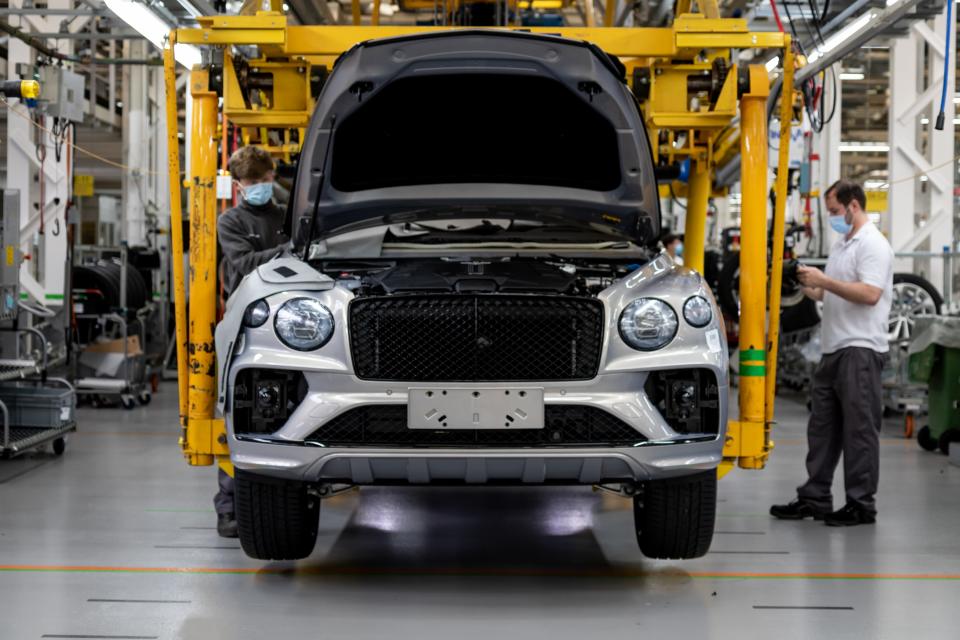
Bentley made a splash recently by announcing that it was planning to go fully-electric by 2030. However, prior to that, it’ll be switching its range of cars up to offer only plug-in hybrid or electric cars by 2026.
It’s a big shift for a company which is known for its hugely powerful petrol engines. However, with access to the wider Volkswagen Group’s electric powertrains, it’s likely to be a seamless shift.
BMW
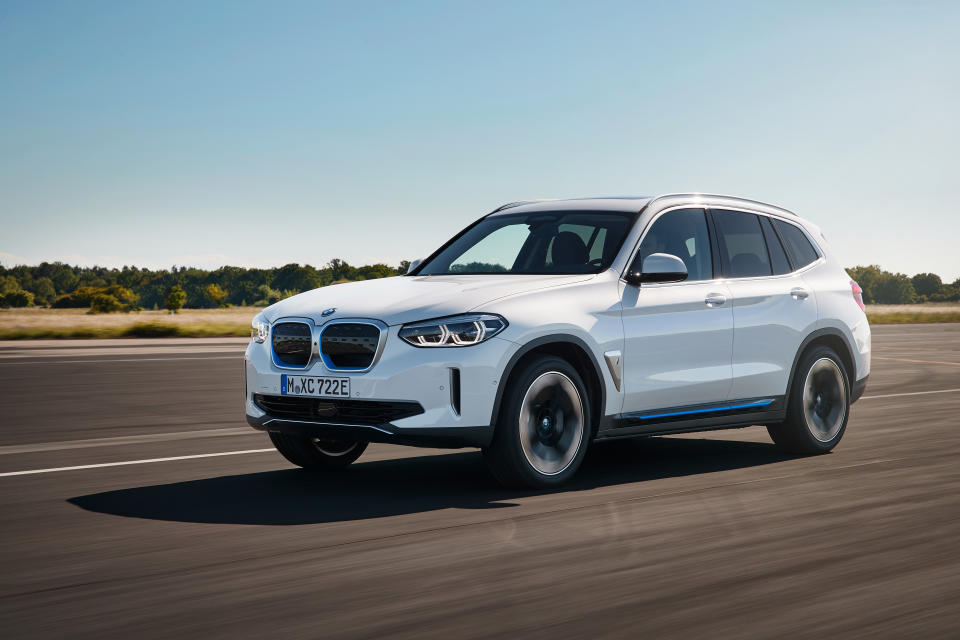
BMW was ahead of the game when it introduced its electric i3 back in 2013, but since then has, by and large, stayed away from introducing a new EV. That’s set to change with the new iX3, while a variety of plug-in hybrid models are being introduced into the firm’s range, too.
By 2025 BMW expects electrified vehicles to account for around a third of its sales. It plans to electrify – either with fully electric or hybrid powertrains – half of its sedans and SUVs by 2030, too.
Citroen
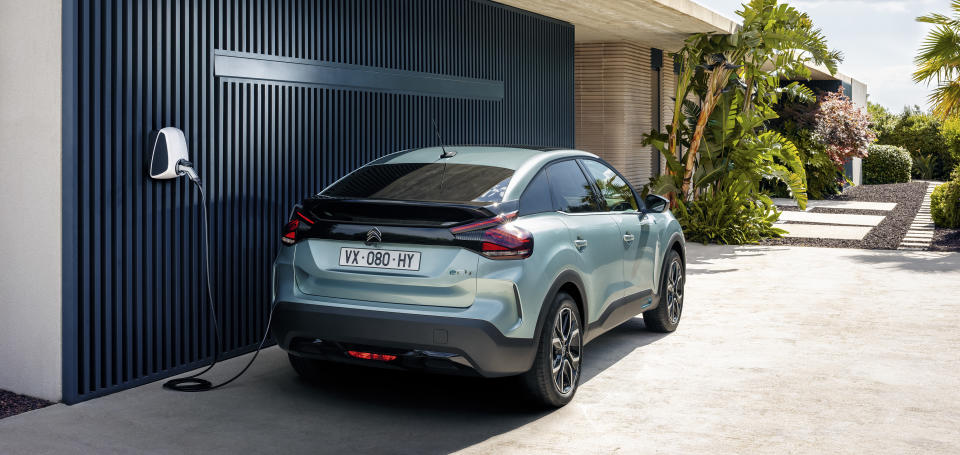
Citroen is planning to offer electrified versions of all of the cars in its line-up by 2025, while retaining petrol and diesel options too. It’s why you can buy the firm’s latest C4 with either a petrol, diesel or electric powertrain, for instance.
As the years pass, it’s likely that Citroen’s current line up will be bolstered with even more electric and plug-in hybrid models. Cars such as the C3 – which is a key seller in the firm’s range – will undoubtedly benefit from electrified powertrains already used in the wider PSA Group.
Dacia

Dacia’s focus will remain on value-for-money in the coming years and will switch from seven different platforms to just one, bringing down costs in the process. The Spring – Dacia’s first fully electric car – is expected to go on sale this year and is set to become one of Europe’s cheapest EVs.
Being so closely connected to Renault means that Dacia’s future is inherently electrified, but we’ll look at what its parent company is up to shortly.
Ferrari
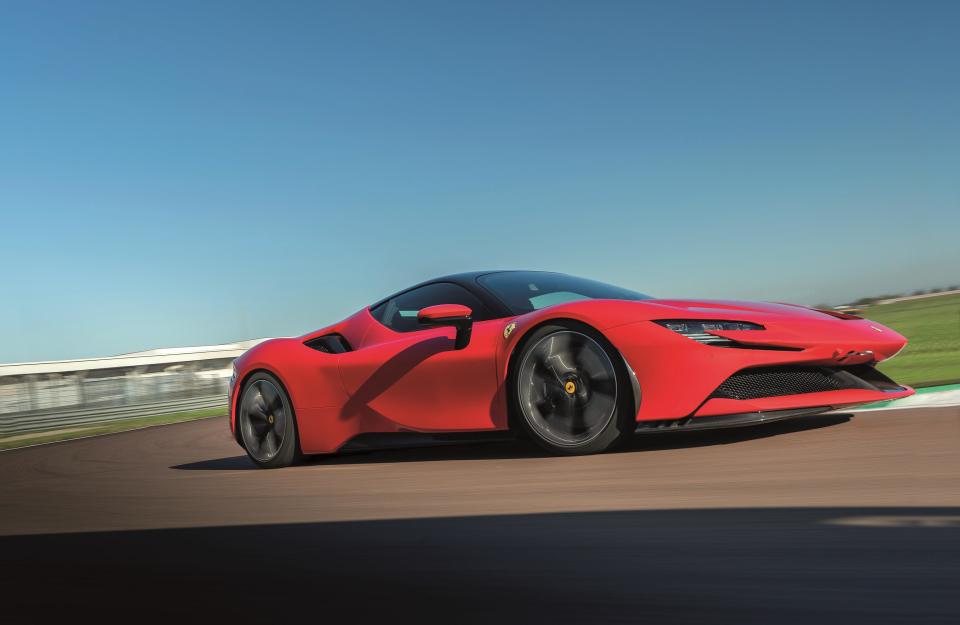
Given that it’s one of motoring’s most famous names, Ferrari has been remarkably hushed about its electrification plans. It has released some hybrid models – the SF90 Stradale being the most recent – but has remained tight-lipped about what its plans for the future are.
There have been reports that we could see the firm’s first electric car arrive in 2025, though Ferrari has yet to make any concrete announcements.
Hyundai
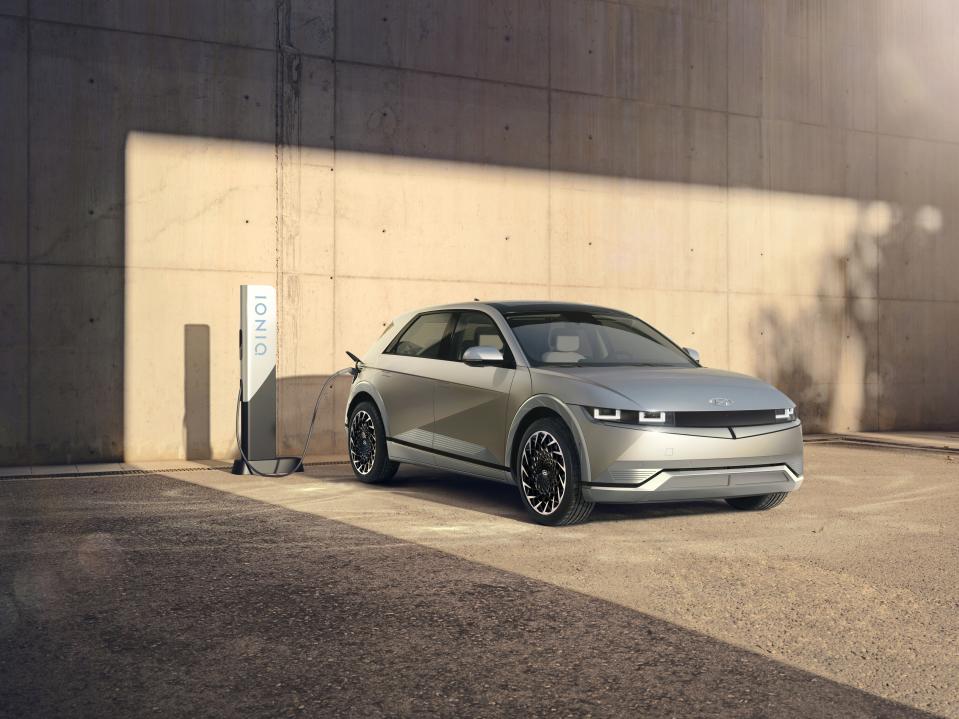
Hyundai unveiled its ‘Strategy 2025’ towards the back end of 2020, outlining its plans for the future. It plans to sell 560,000 EVs per year by 2025 and looks set to introduce more than 12 battery-electric vehicles (BEV) too.
It’s also targeting an eight to 10 per cent market share for electric vehicles by 2040. Hyundai’s plans show that electrification really is at the heart of what it is looking to do.
Jaguar Land Rover

Jaguar Land Rover is well on its way in terms of electrification, with Jaguar’s fully electric I-Pace sitting alongside a variety of plug-in hybrid models elsewhere across the board. Even Land Rover’s striking new Defender has the option of a plug-in hybrid powertrain.
It was announced recently that Jaguar would become an electric-only brand from 2025, while Land Rover’s first fully-electric model will arrive in 2024 as the first in a six-model-strong electric line-up.
Jeep
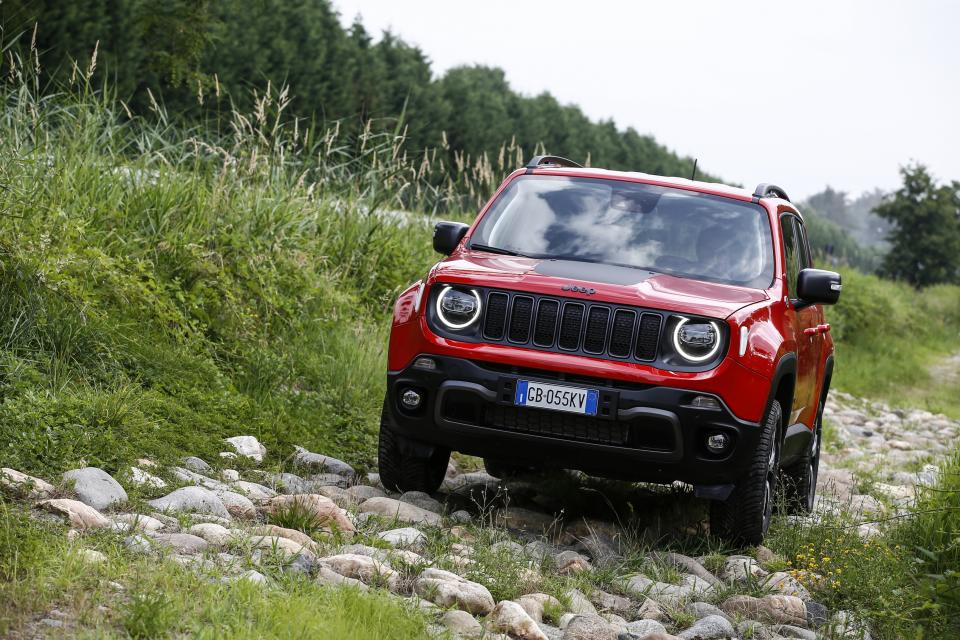
Jeep is a company centred around tough, go-anywhere models which can handle all manner of terrains and conditions. Now traditionally electric vehicles wouldn’t be your first port of call for off-roaders, but that’s just what Jeep is planning.
It has already introduced a plug-in hybrid version of its popular Renegade, while an electrified version of its go-anywhere Wrangler could be hitting the roads this year. It’s part of Jeep’s plans to electrify all of its line-up in the coming years.
Kia

Kia’s electrification plans are comprehensive to say the least; it’s planning to introduce seven electric models by 2026 and expects EVs, plug-in hybrid and hydrogen-powered cars to account for 40 per cent of its global sales by 2030.
It already has several electrified models on sale, including the e-Niro and Niro plug-in hybrid – though these plans will expand on this considerably.
Lexus

Lexus is a company that has been offering hybrid cars for many years now, bringing lower running costs in vehicles that both look and feel good. Its first fully electric car – the UX 300e – hits the UK’s roads this year, but the firm is looking to build on this even further.
By 2025 the firm expects to offer electrified versions of all its existing models, while also pursuing the development of fuel-cell technology, too.
McLaren

McLaren has already started integrating hybrid technology into its cutting-edge supercars, with cars like the P1 and recently-announced Artura benefitting from extensive battery assistance in the quest for cleaner performance.
McLaren has already stated that it plans for its sports car and supercar range to be solely hybrid-powered by 2025, while 18 new models look set to be introduced between now and the middle of the decade.
Mercedes-Benz
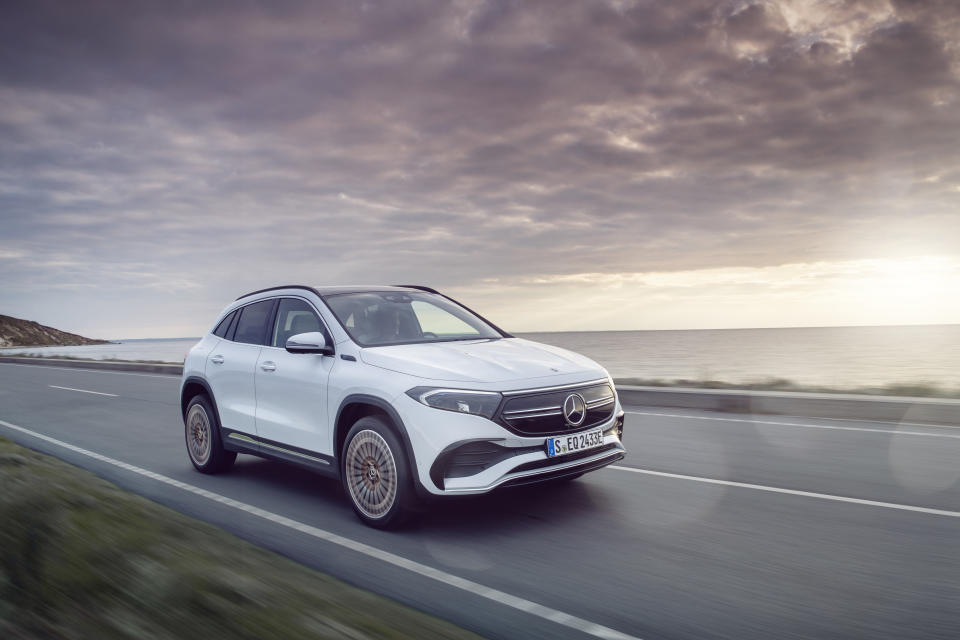
Mercedes is already on track with its electrification plans, having introduced its electric EQA alongside numerous hybrid models recently. It’s looking to further this, mind you, and plans to offer ten different EVs by 2022.
The firm also plans to electrify its entire range by next year – either through hybrid, plug-in hybrid or electric powertrains – bringing 50 electrified options to market in total.
MG

MG has been quietly chipping away at the EV segment and was one of the few firms to post record profits despite the coronavirus pandemic. Its popularity is being driven by the introduction of electric models, with the firm’s MG ZS EV accounting for nearly a third of sales.
MG will be expanding its line-up further this year, while the recently-introduced MG5 takes the crown as the first electric estate car in the UK.
Mini
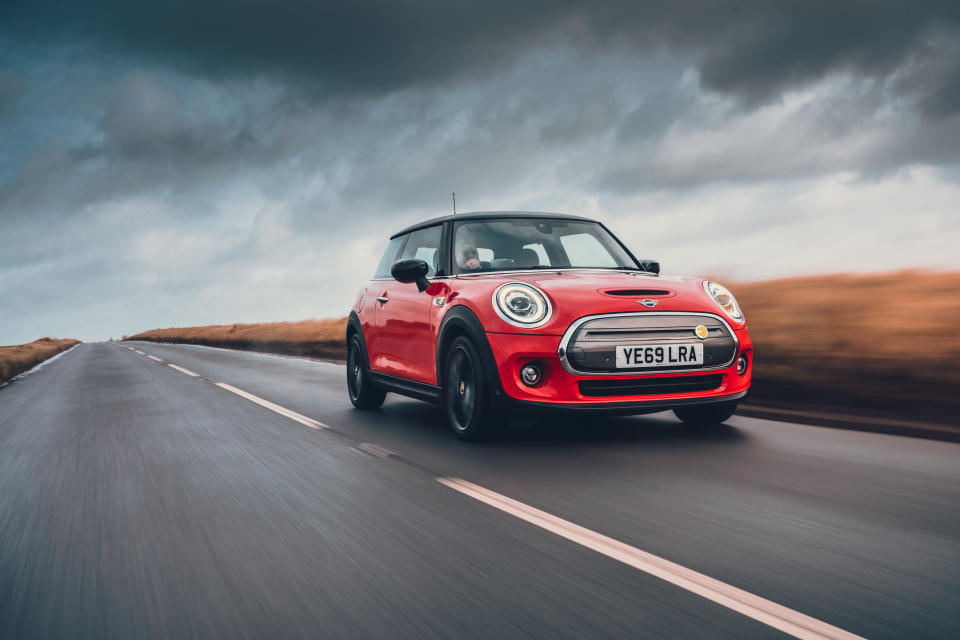
Mini’s Electric hatch has already made quite the impact on the market thanks to its retro looks and involving driving experience. It’s set to expand on this further, bringing more battery-electric models which will replace the firm’s existing line-up.
Its plug-in hybrid models will likely be phased out in favour of solely electric cars, too.
Nissan

Nissan’s Leaf is one of the icons of the electric segment, having set the tone for EVs when it was introduced some years ago. Now, the firm plans to develop eight purely electric vehicles by 2022, building on the success of the Leaf.
It also plans to sell one million electrified vehicles – either solely electric or hybrid – each year by 2022.
Peugeot
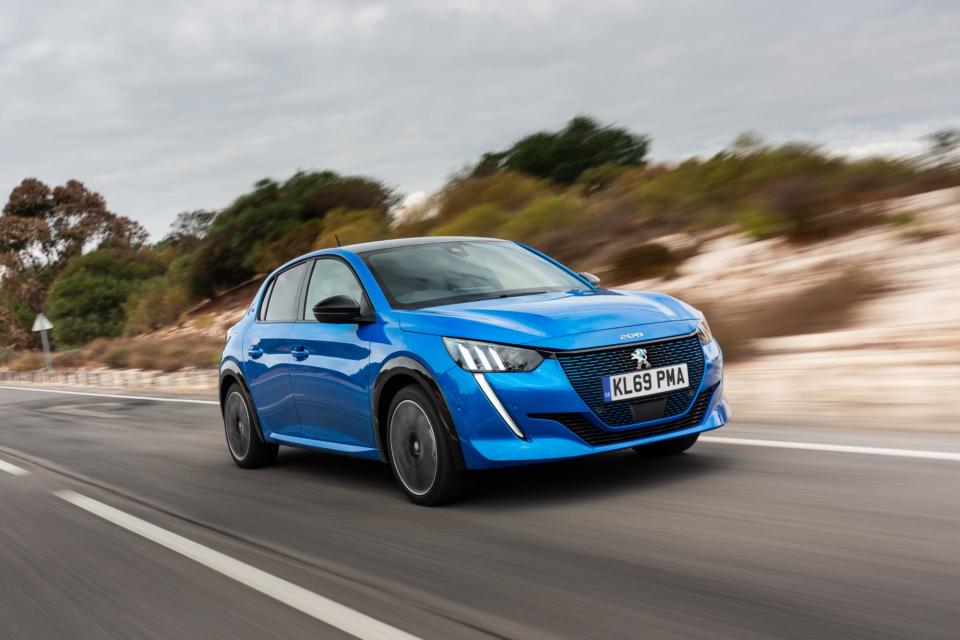
Peugeot is making its presence known in the EV segment at the moment, with good-looking models such as the e-208 and e-2008 showing that electric cars needn’t be lacking in style.
As part of the wider PSA Group, Peugeot will benefit from the firm’s multi-powertrain strategy, with internal combustion or electrified (plug-in hybrid or regular hybrid) versions of its cars made available to customers.
Polestar
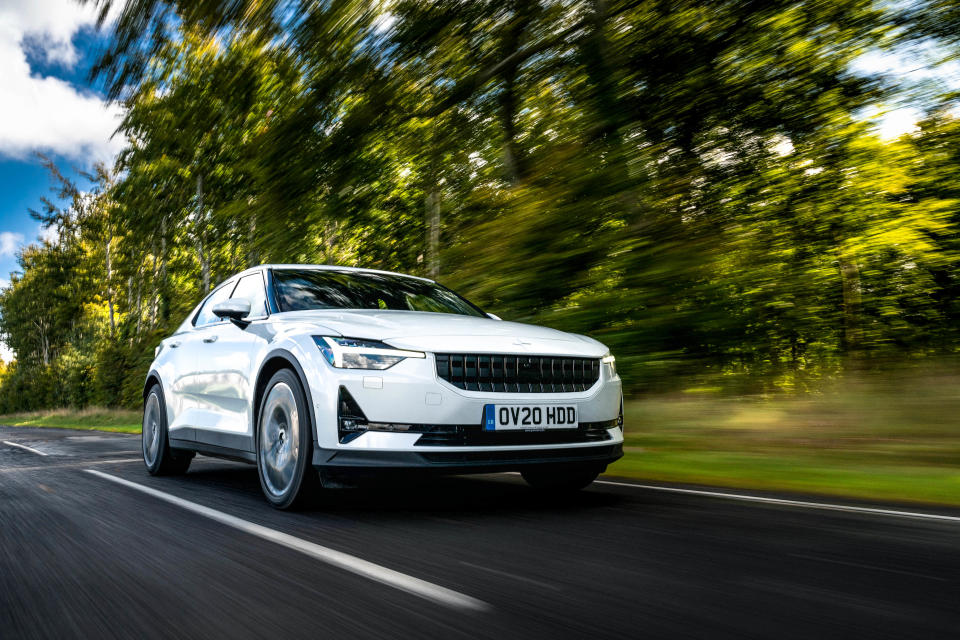
Polestar split apart from Volvo to become its own thing back in 2017 and has, since then, moved forward with one eye focused heavily on being as eco-friendly as possible. Its latest car, the Polestar 2, uses a range of recycled and low-carbon materials, for instance.
The firm will expand its line-up of cars with its new Precept saloon, which also showcases the use of recycled materials such as plastic water bottles and fishing nets.
Renault

Renault is doubling down on electric cars, with its eye-catching revival of the classic Renault 5 hatchback set to become the firm’s EV poster car. Making the most of the wider Alliance platforms means that Renault can plan to ensure that half of its line-up will be fully electric by 2025.The firm also plans to unveil seven electric models by 2025.
Seat

Seat is putting its money where its mouth is when it comes to electrification and has pledged €5bn in investment by 2025, allocated to research and development projects which will look to develop new ways to electrify the firm’s range of cars.
Cupra – the performance branch of Seat which has become its own standalone brand – will also launch its first fully electric vehicle into European markets next year.
Skoda
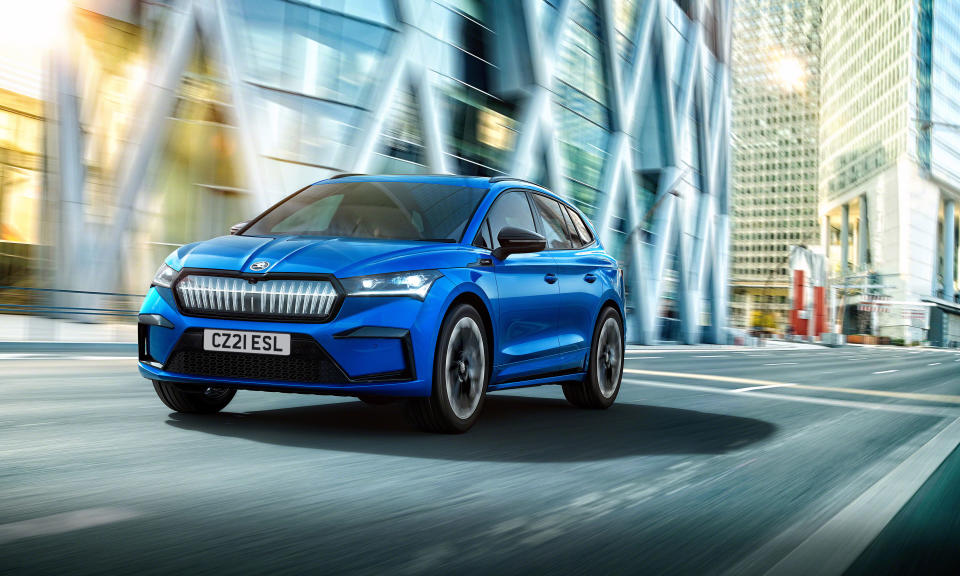
As part of the wider Volkswagen Group, Skoda has EV ambitions too. By 2025, Skoda’s range will include 10 electrified models pitched ‘in various segments’ according to the manufacturer. Six of these will be fully electric, with the remaining cars powered by hybrid setups.
Skoda has already revealed its first electric vehicle – the Enyaq iV – which will go on sale later this year.
Toyota
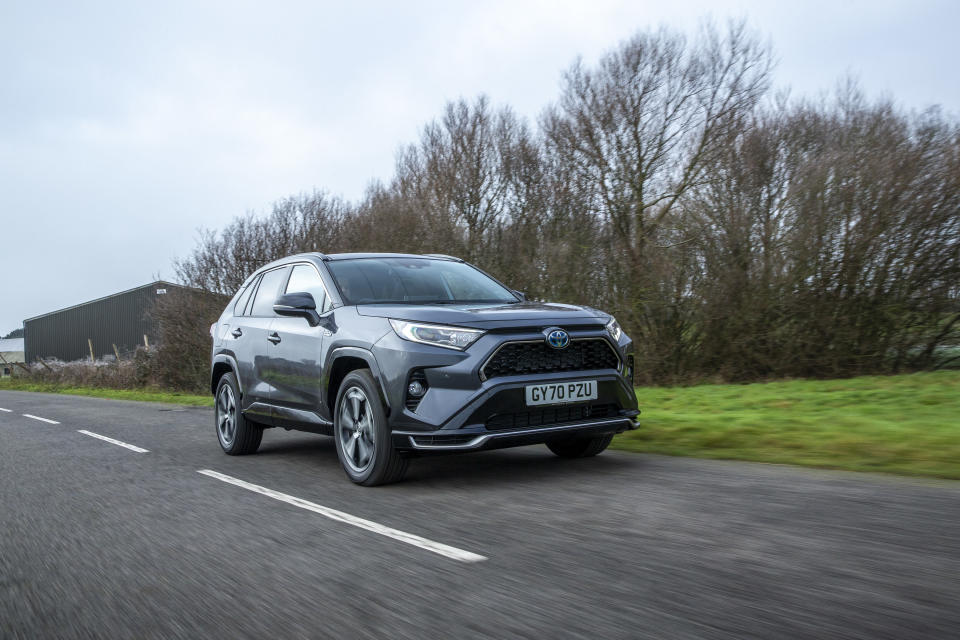
Toyota’s electrification plans are extensive, to say the least. It aims to launch 40 new or updated electrified vehicles by 2025, bringing hybrid, plug-in hybrid, electric and hydrogen models to market.
Toyota already has an extensive range of hybrid models, as well as the Mirai – one of just two hydrogen-powered cars currently on sale in the UK.
Volkswagen
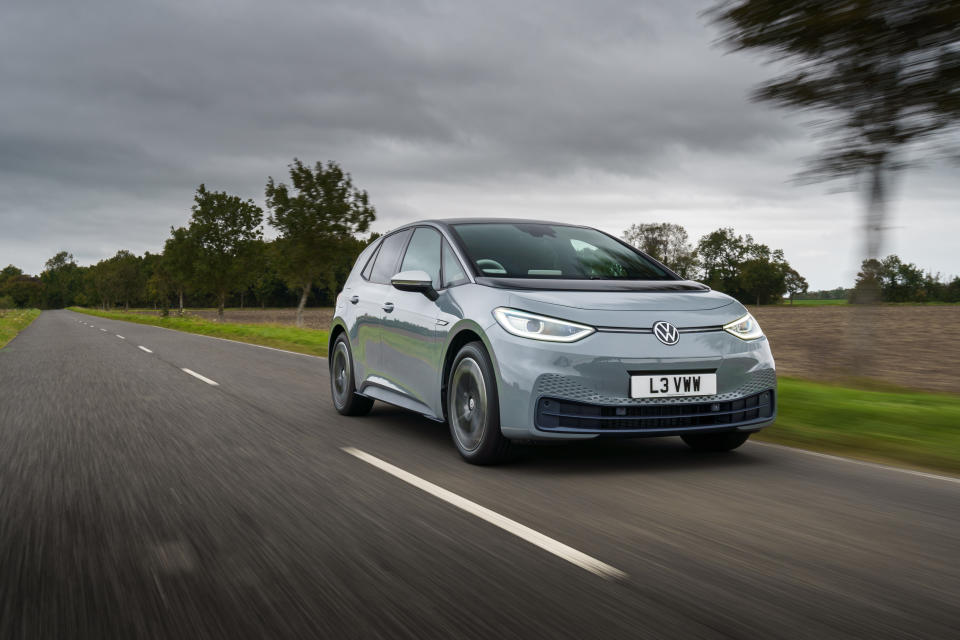
Volkswagen’s reputation was distinctly tarnished by the emissions scandal, which is why it is understandably pursuing cleaner and more efficient technologies. It has already kick-started things with its electric ID.3 and ID.4, forming a whole new range of electric cars.
It expects to hit 1.5 million electric car production units in 2025, and signed off a comprehensive de-carbonisation plan to help it achieve CO2 neutral status by 2050.
Volvo
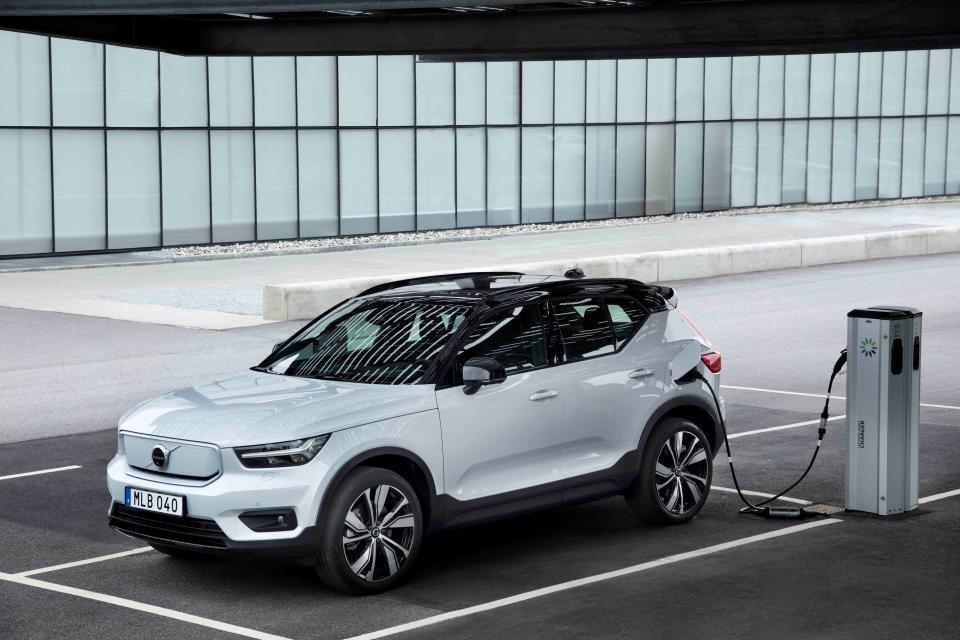
Volvo has announced today that it plans to go fully electric by 2030. This will see the firm gradually reduce the number of combustion engine-powered cars – including hybrids – until it switches to solely EV. Its first electric model – the XC40 Recharge – has already arrived, while a second model is due to be announced.
Furthermore, Volvo plans to sell all of its electric cars entirely online – though dealers will still be looking after key areas of the car buying process including ‘selling, preparing, delivering and servicing cars’.

 Yahoo Finance
Yahoo Finance